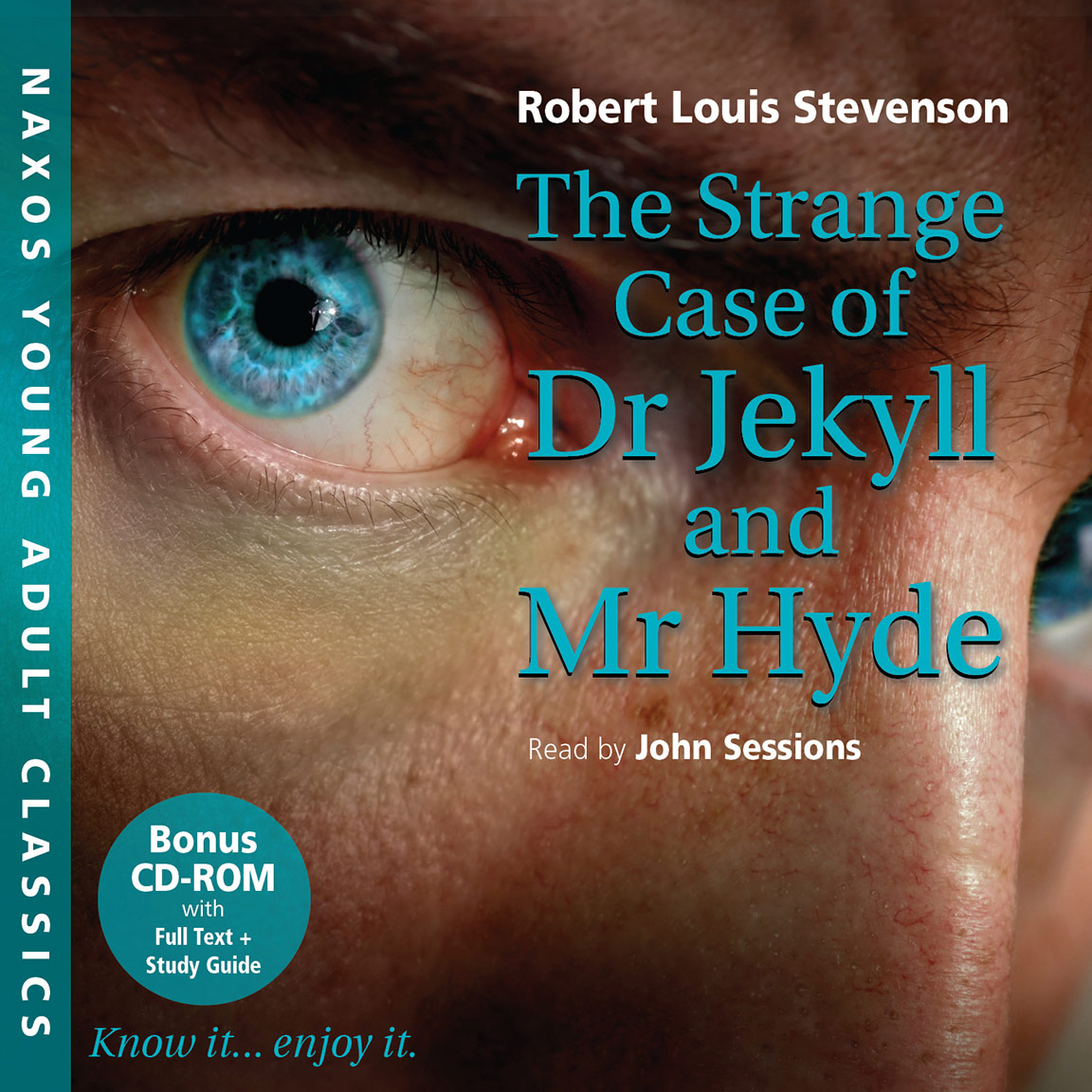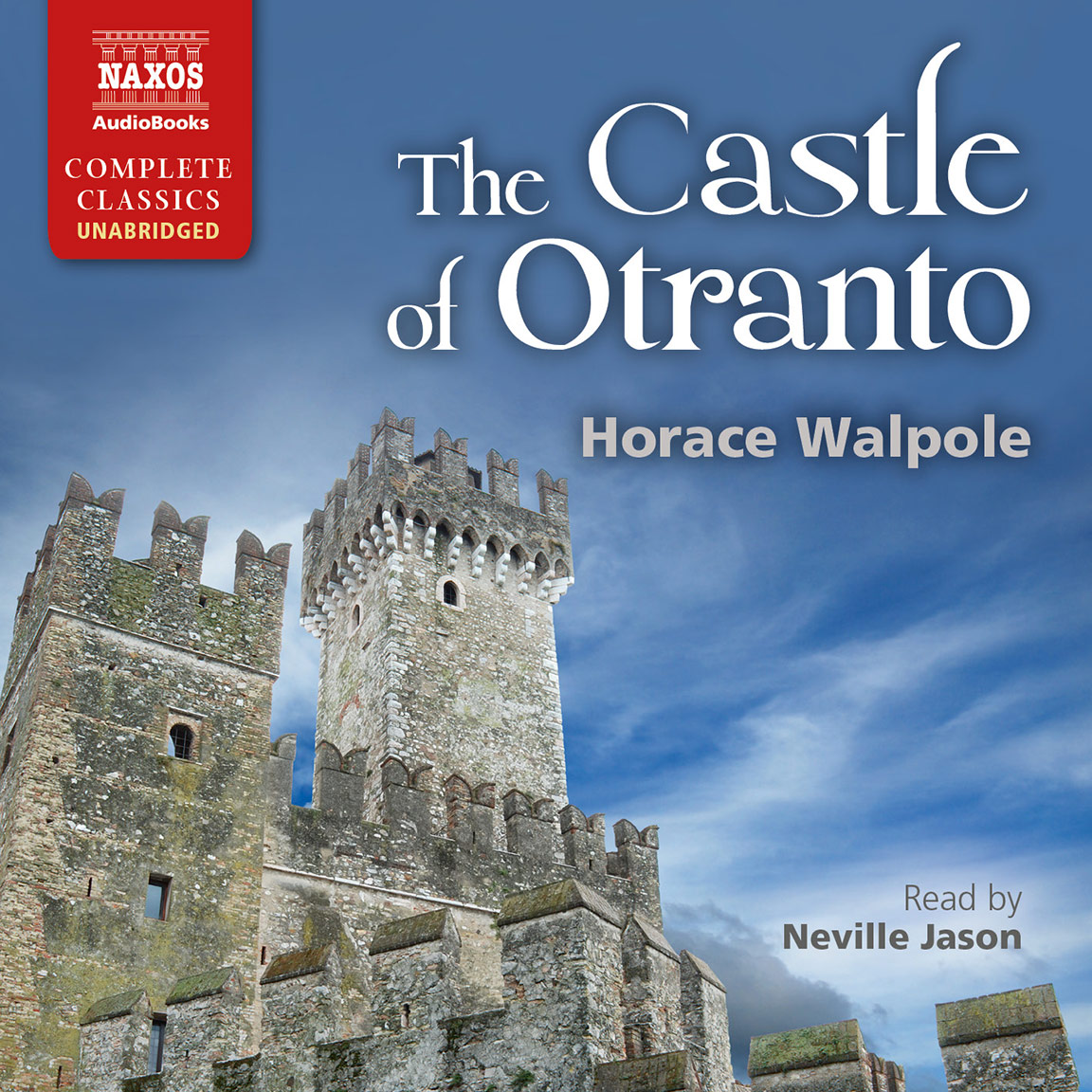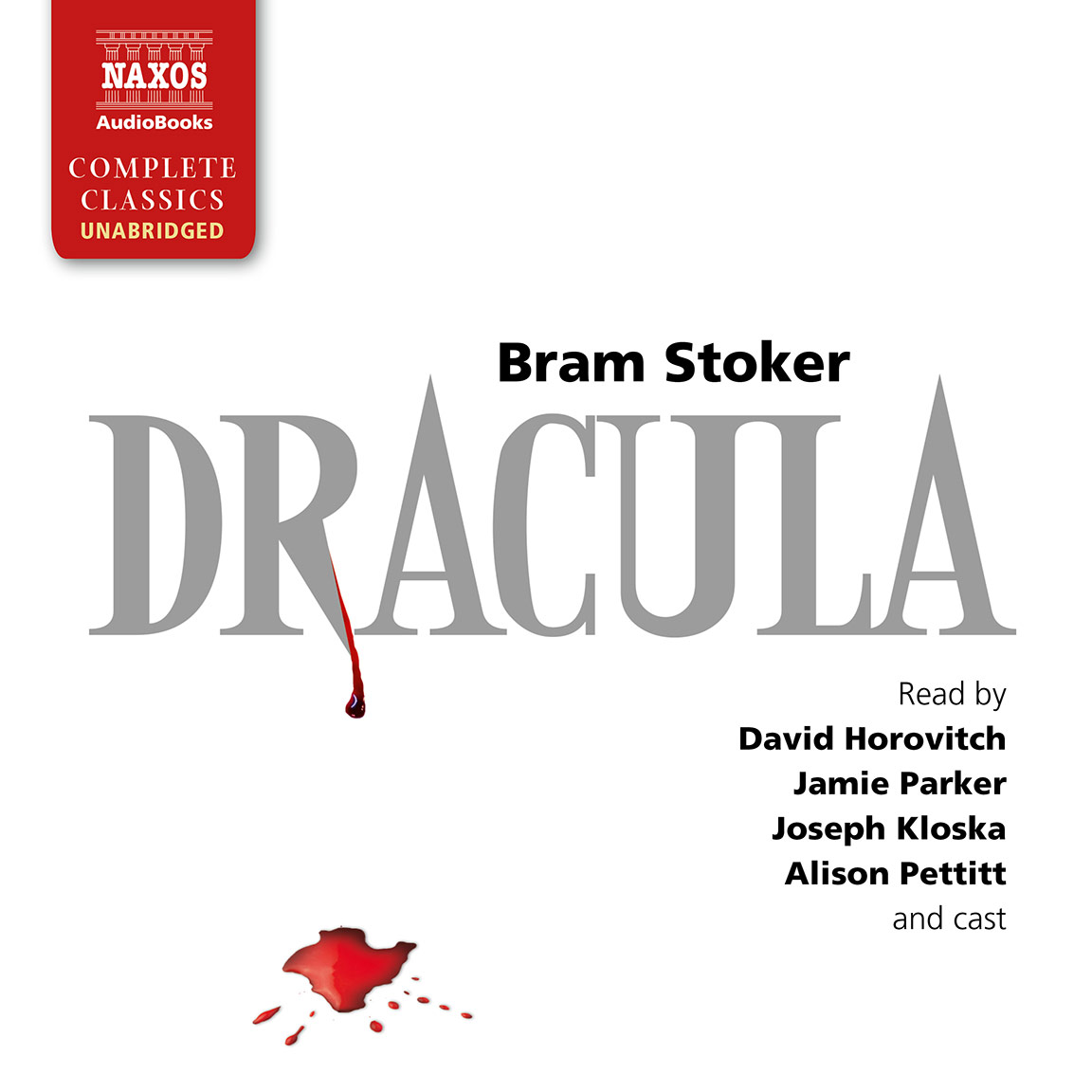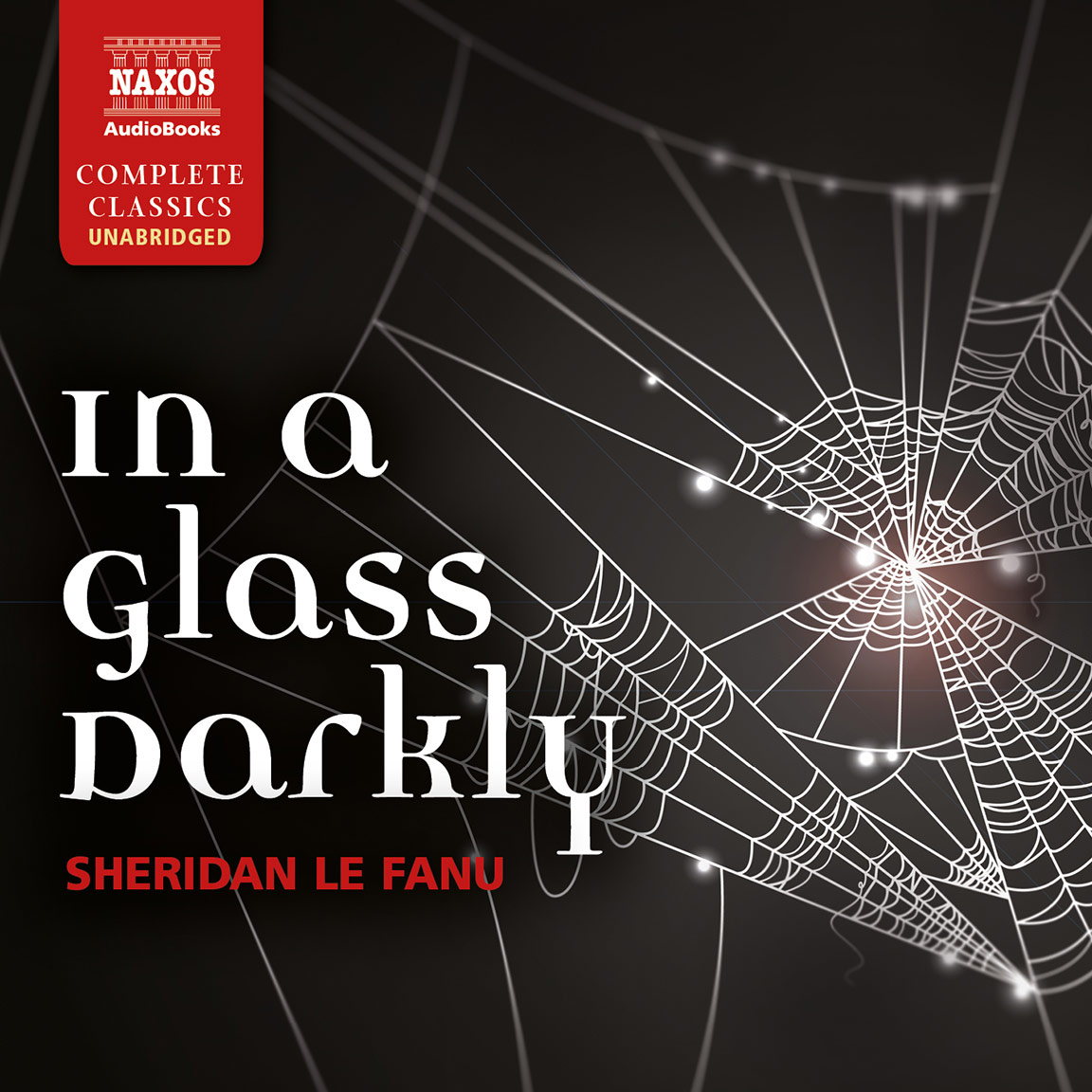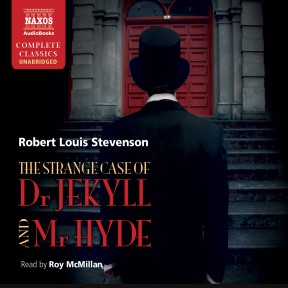
Audio Sample
Robert Louis Stevenson
The Strange Case of Dr Jekyll and Mr Hyde, Markheim
Read by Roy McMillan
unabridged
In a fog-wreathed London, the respected Dr Jekyll’s experiments on the dual nature of man unleash a brute that feels no moral restraint or remorse. Although excited by this freedom, Jekyll discovers that he is unable to control the power of his vicious alter ego and is faced with shameful discovery or ignominious death. Haunting and thrilling, this atmospheric fable is one of the world’s greatest short stories. It is twinned here with Markheim, an earlier tale of second selves, conscience and the struggle between good and evil.
-
Running Time: 3 h 22 m
More product details
Digital ISBN: 978-1-84379-446-2 Cat. no.: NA0024 Download size: 49 MB BISAC: FIC004000 Released: September 2011 -
Listen to this title at Audible.com↗Listen to this title at the Naxos Spoken Word Library↗
Due to copyright, this title is not currently available in your region.
You May Also Enjoy
Reviews
This was a great audiobook! I listen to a lot of audiobooks and have to say that this one was particularly fun to listen to. I had never read this classic tale and always wanted to, and through this audiobook I can honestly say it was worth the wait. The story is gripping and you are drawn into the culture and life of England in the day of the story. The second story, Markheim, was also interesting as it was written prior to the [first] story and you can see that the ideas of the duality of man come into play here prior to Stevenson’s writing of Dr Jekyll and Mr Hyde. Overall, this was a great book that I would highly recommend!
Dad of Divas blog
The inclusion of the obscure Stevenson short story, Markheim, distinguishes this excellent audio version of The Strange Case of Dr Jekyll and Mr Hyde from many previous recordings. Roy McMillan is more than up to the formidable task of sketching the two personalities trapped in one body with just his voice; he’s so successful that listeners may think different actors depict the respectable Victorian doctor and his brutish, murderous alter ego. McMillan also deserves kudos for maintaining listener interest during the novella’s lengthy expository sections. While Markheim – about a cryptic encounter between a man who unexpectedly turns violent and a supernatural being that might be the Devil – is less compelling than the author’s classic novella, McMillan again provides its characters with distinct voices.
Publishers Weekly
Today, when most people have seen, read or heard some derivation of The Strange Case of Dr Jekyll and Mr Hyde, but few have read the original novella, it is a delight to come back to Robert Louis Stevenson’s original story and to be disturbed and revolted anew by Stevenson’s mild-mannered Dr Jekyll and his horrifying alter-ego Mr. Hyde.
The Strange Case opens, blandly enough, with an anecdote told between two friends, Enfield and Utterson, as they pass by a particular door in London. Enfield recalls the strange event that he witnessed one night, when the streets were abandoned: a shrunken, horrible little man ran down that street and trampled a little girl who was in his path. Enfield helped the girl’s parents identify the man, who turns out to be Mr Hyde, as weird and off-putting as Enfield initially sensed. Hyde shushes the parents with money drawn from the account of the respected gentleman and Utterson’s friend, Dr Jekyll. Naturally, Utterson is intrigued (as, no doubt, the listener is) and, after some digging, discovers that Hyde is now a beneficiary in Jekyll’s will, destined to profit should Jekyll disappear unexpectedly. The more Utterson delves into the strange case, the more Jekyll withdraws from Utterson and society. Meanwhile, Hyde’s crimes escalate, culminating in the very public beating of a man to death. Eventually, the whole weird tale is brought out, and is even more sinister without the modernized, polished trappings that recent remakings have brought.
Unlike The Strange Case, few modern readers are likely to be familiar with the lesser-known, but similarly themed work by Stevenson, Markheim, which is paired with The Strange Case in this audiobook. The main character of Markheim also wrestles with his inner evil, but unlike Jekyll, it seems as though the evil inside him is not so easily separated from the good. Markheim murders a shopkeeper when the shopkeeper suggests that Markheim purchase a mirror (Markheim’s reflection is so hideous to himself, that he becomes enraged by it), and then decides to raid the shopkeeper’s home for valuables. A natural assumption would be that Markheim has reached the very depths of evil with this murder, but we are informed that in fact, Markheim went to the dark side long before, and this crime is but one more on the long list. Markheim gets the unwelcome insight into his hideous soul from a strange visitor, who comes into the shopkeeper’s house as Markheim begins his raid. The visitor eerily resembles Markheim at times, and knows quite a lot about him. Oddly enough, he even encourages Markheim to wriggle out of this latest crime so that he can continue slithering through his nefarious life. Markheim’s attempt at redemption, the possible identity of the stranger (is this another Hyde?), will bring a chill down the listener’s spine on a sunny day, so frightening is Stevenson’s familiarity with the baseness that lurks within everyone.
Roy McMillan, who narrates both stories, sounds like an English gentleman, but shifts remarkably between the upper-class voices of Utterson and Enfield, to the nervous cockney maid, to the guttural, utterly frightening rasps of Mr Hyde in The Strange Case. McMillan’s well-trained voice and his theatrical reading enhance both The Strange Case and Markheim.
Joanna Theiss, SoundCommentary
One of the most famous short stories of all time, Stevenson’s classic tells the tale of the respected Dr Jekyll and his experiments on the dual nature of man. But these experiments unleash the good doctor’s evil alter ego, Mr Hyde, a brute with no conscience or morality. As well, this set includes an earlier Stevenson story, Markheim, a fable about conscience and the struggle between good and evil.
H.J. Kirchhoff, the Globe and Mail
Booklet Notes
Robert Lewis Balfour Stevenson was born in Edinburgh in 1850. His father was an engineer, his mother from a family of lawyers and ministers – all professions and callings that Robert would eventually renounce in favour of a vocation far less secure: that of a storyteller. It is just plausible, if hardly provable, that he was from early childhood aware of the very delicate hold he had on life; he yearned profoundly for romance and adventure and wanted to make the very most of what little there might be, rather than swathe himself in secure and solid respectability.
Physically, emotionally, intellectually and constitutionally he was in any case unsuited to such professional restraints. He suffered from a tubercular disorder which, if it did not directly kill him, wore him down throughout his life. He could not start school until he was seven, and even then could attend only for a limited time because of his weakness. A career dealing with the lighthouses around the northern coasts of Scotland was never likely, although he wrote with some pride of the work which his forebears had done (and which their descendants would continue to do). Similarly the law, for all its intellectual appeal and the fact that many a lawyer had been a writer, did not suit. He was too inventive (or fanciful), too restless, too intrigued by human nature. He was keen to travel, to taste life in a freer fashion, to step away from the sedate, possibly smug, establishment of conformable Edinburgh. Convinced of his atheism by the time he was 22, he was also a world away from observing the established beliefs, a matter which wounded his parents deeply.
He had a
heart as
wide as
the open
seas he
loved
But for all his avowedly Bohemian ways, his anti-establishment leanings and his non-conformist attitudes, he was generous, dutiful, caring, faithful and funny; and even if he did fall into somewhat dangerous company while at university, it was as much a part of his research (into himself as well as others) as youthful rebellion. He started off studying engineering before he switched to a law degree, but even as he was studying, he knew that he wanted to live as a writer, and he had already cultivated the company of other artists when he began to travel in France during the holidays. He had also changed his middle name from the traditional ‘Lewis’ to the more cosmopolitan ‘Louis’, though he kept the original pronunciation. He dropped the ‘Balfour’ a few years later. All these acts suggest the shedding of skins, peeling back layers of impositions until he felt capable of freeing himself; but one cannot remove the past entirely, and he did not necessarily wish to. He felt a great and genuine affection for his parents, and they eventually promised him £250 a year once he was definitely set on his career. However, the conflict between what was expected of a dutiful son and what the son himself preferred was to be a feature of many of his later writings, as was the issue of doubles, or second selves.
Meanwhile he had to get on with travelling and writing. His health was a good enough excuse to send him south while he was still studying law (and publishing his first professional piece of writing) but once he graduated in 1875 he was rarely still: he visited Holland, Scotland, London, Paris and many different areas of France. In France, only a year or so after he graduated, he met Fanny Osbourne, an American who was separated from her husband and had two children. A tortuous, transcontinental romance ensued, one that very nearly killed Stevenson as he travelled across America in poor health and with no money. But they married in 1880, and her strength of character, wit and devotion upheld him and helped reconcile him to his family.
Most of the next decade was spent partly searching for somewhere to live (Scotland, England, America) but also producing some of the most enchanting, thrilling and haunting fiction ever written: Treasure Island, Kidnapped, A Child’s Garden of Verses, The Body Snatcher, The Wrong Box, The Master of Ballantrae. Both The Strange Case of Dr Jekyll and Mr Hyde and Markheim belong to this period, and both are concerned with the notion of the duality of human nature. The conflict between the imperative to do good and the temptation of evil is common enough (Lucifer, after all, was an angel) but in mid-Victorian Britain there was a powerful tension between the need to be seen as morally upstanding and the unacceptable desires that had therefore to be repressed. The external equivalents of this were, for example, in the slums and poorhouses of the wealthiest cities; and the psychological ones were just as stark and all the more intriguing.
Successive schools of critics have argued over the precise allegory in Jekyll and Hyde, some believing that the story refers to repressed homosexuality specifically, sexual desire generally, Edinburgh’s genteel New Town in contrast to its seamy old one, the Scottish character as a whole, and much more besides. Stevenson was more than aware of the allegory but he comprehensively eschewed any single reading, and that is why the story is so good. It is clearly about the conflict between good and evil, and the danger of conscienceless action, but it is so mesmerising because it is not limited to one area of this conflict. We are not excused our own possible culpability by deciding that it’s not about us: it could be.
Markheim was written a year or so earlier. It is concerned more specifically with a choice between right and wrong action but it presents the choice through a conversation with a troubled Everyman and an unnamed stranger. He is calm, knowing and persuasive – but who is he? His conscience? The Devil? It is a less complex fable, but told with typical and absorbing ease.
Stevenson ended his life in the South Pacific. He finally settled on a Samoan island where, although the climate seemed to aid his general health, he died suddenly of a cerebral haemorrhage at just 44. The range of his writings is huge – novels, fantasies, short stories, fables, travel, anthropological studies, verse, letters, journalism, memoirs – but they seem to be extensions of his broad, inclusive, gregarious and adventurous personality rather than professional obligations. He had a heart as wide as the open seas he loved, and in his escape from the grey confinements of respectable professionalism he takes his readers as joyful passengers.
Notes by Roy McMillan
